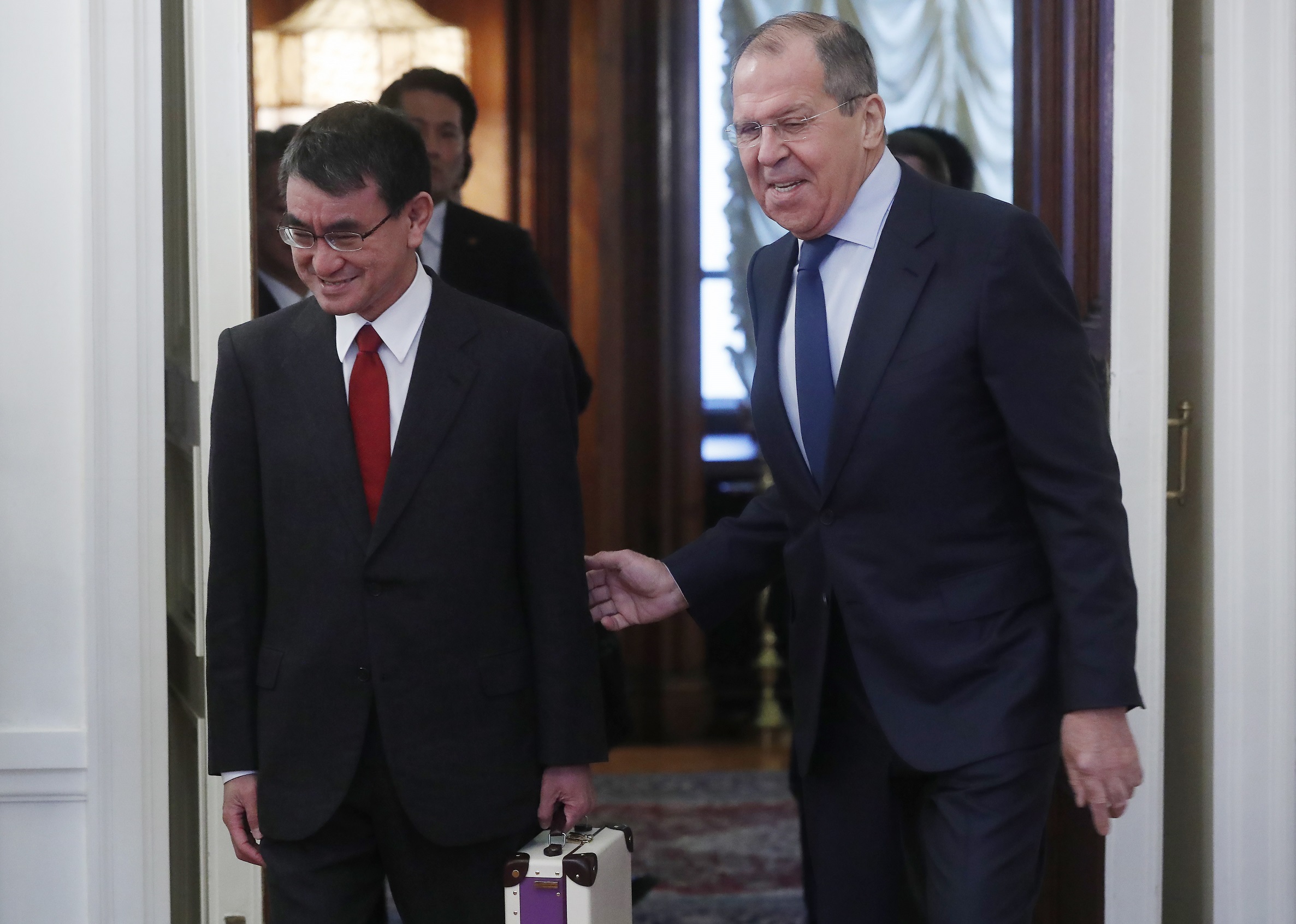ID :
519239
Tue, 01/15/2019 - 10:33
Auther :
Shortlink :
https://oananews.org//node/519239
The shortlink copeid
Japan makes no objections concerning outcome of WWII - Lavrov

MOSCOW, January 14. /TASS/. Japan did not make any objections to Russia’s statement that the results of World War II are not subject to review, Russian Foreign Minister Sergey Lavrov said following the first round of Russian-Japanese talks on making a peace treaty.
"I clarified Russia’s position on the results of World War II in detail," he said. "I pointed out that apart from the Treaty of San Francisco, some other documents and the [Soviet-Japanese] Declaration of 1956, which draws a final line under World War II and should be read in conjunction with the Treaty of San Francisco, there is also an important document such as the United Nations Charter. Its Article 107 recognizes the results of World War II as they were outlined by the allies. We reiterated it to our Japanese colleagues and heard no objections," Lavrov added.
Kuril Islands issue
Since the mid-20th century, Russia and Japan have been holding consultations in order to clinch a peace treaty as a follow-up to World War II. The Kuril Islands issue remains the sticking point since after WWII the islands were handed over to the Soviet Union while Japan laid claims to the four southern islands. In 1956, the two countries signed a joint declaration on ending the state of war and restoring diplomatic and all other relations, however, a peace treaty has still not been reached. Moscow has stated many times that Russia’s sovereignty over the islands cannot be called into question.
Treaty of San Francisco
Japan, occupied by US troops, got a chance to make a peace treaty with the winning powers at an international conference held in the US city of San Francisco in September 1951. The treaty, signed by Tokyo and 48 members of the Anti-Fascist Coalition, said that "Japan renounces all right, title and claim to the Kurile Islands, and to that portion of Sakhalin and the islands adjacent to it over which Japan acquired sovereignty as a consequence of the Treaty of Portsmouth of 5 September 1905." However, the document did not clarify in whose favor the step was taken. In addition, a number of countries which had suffered from Japan’s aggression were not invited to the conference (first and foremost, China), so the Soviet delegation refused to sign the treaty, deeming it unauthorized.
Soviet-Japanese Declaration
On November 14, 2018, Russian President Vladimir Putin and Japanese Prime Minister Shinzo Abe held a meeting on the sidelines of the ASEAN summit in Singapore and agreed that the two countries would speed up peace treaty talks based on the 1956 declaration.
The Joint Declaration said that the Soviet government was ready to hand Shikotan Island and a group of small islands over to Japan, adding that Tokyo would get actual control of the islands after a peace treaty was signed. However, after Japan and the United States had signed the Treaty of Mutual Cooperation and Security in 1960, the Soviet Union withdrew its obligation to hand over the islands. A Soviet government’s memorandum dated January 27, 1960, said that those islands would only be handed over to Japan if all foreign troops were pulled out of the country.
Read more





